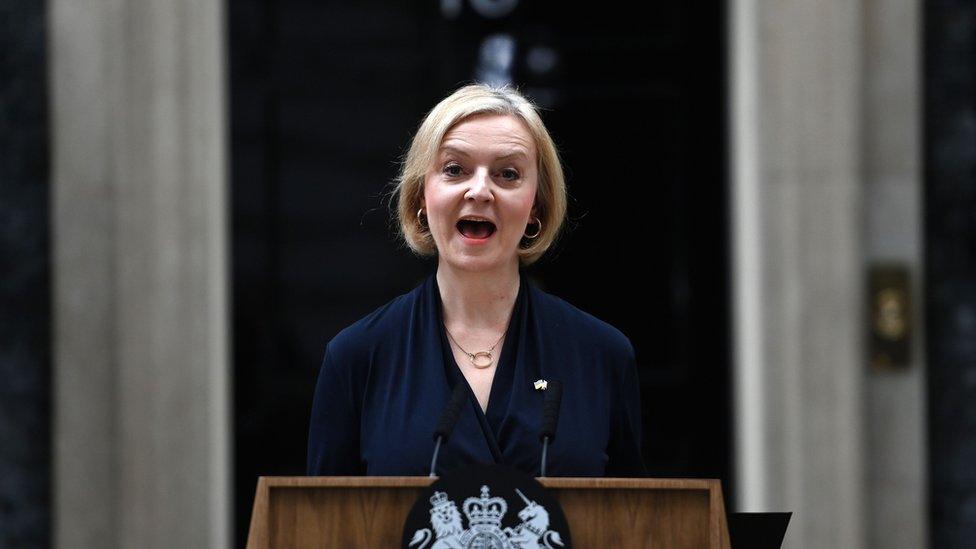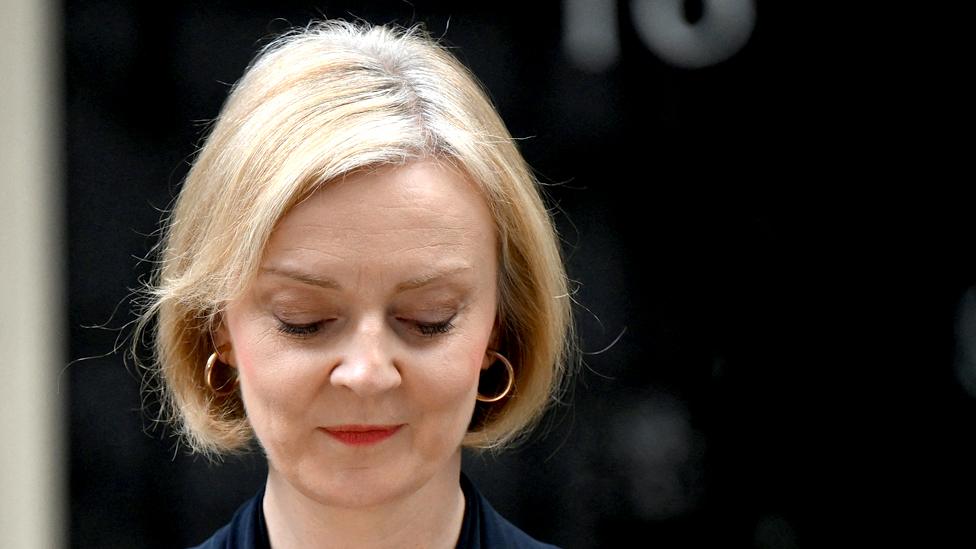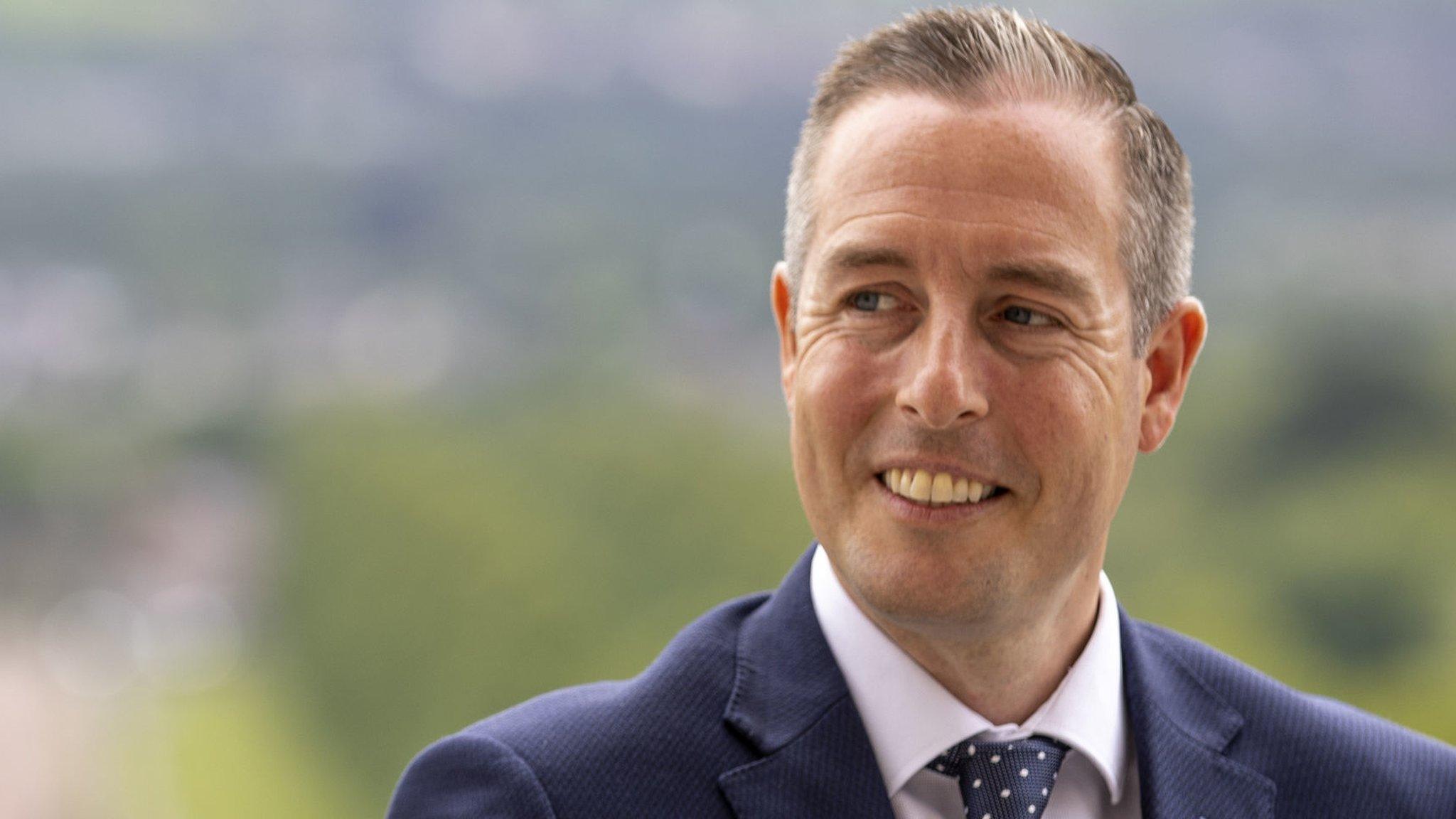Liz Truss: What does prime minister's resignation mean for NI?
- Published

The ultimate U-turn. On Wednesday Liz Truss was proclaiming: "I am a fighter not a quitter."
The next day she quit after a swell of fury in the Conservative Party she could no longer ignore.
And her fight to change the Northern Ireland Protocol to fix power-sharing at Stormont is unfinished too.
It wasn't so long ago that Ms Truss was talking herself up as the architect of the controversial bill that would give ministers powers to scrap parts of it.
The bill came highly commended by the Democratic Unionist Party (DUP) which viewed the legislation as a way of delivering on its demands before re-entering Stormont if a negotiated outcome with the EU isn't reached.
Those UK-EU talks have in recent weeks resumed but Brussels will now wait with bated breath to see who emerges as Number 10's new occupant.
That is likely to mean another reset and delay on a deal, if there is one to be reached at all.
The DUP, which had developed a close relationship with Liz Truss during her tenure as foreign secretary, never openly backed her for leader - but its preference for her over Rishi Sunak was obvious.
Missed opportunity?
Whoever comes next as PM may not be quite so sympathetic to the DUP's predicament over the protocol - a point outlined by Alliance leader Naomi Long, who suggested the DUP had missed its opportunity and would find its stance weakened under a new PM.
If it is worried, the DUP isn't letting on and insists it won't be budging or helping the next government off the hook either.
And certainly not before the countdown expires for getting a Stormont executive in place by 00:01 next Friday, in order to avoid an assembly election.
When asked if a new PM might soon mean a new Northern Ireland secretary - and therefore a possible pause on another poll, a Whitehall source said: "The personnel may change but the law is the law."
Election U-turn
Of course, the past 24 hours have shown how fast politics can move.
But if the Northern Ireland Office is preparing for a U-turn to prevent a pre-Christmas election, those at Stormont are far from convinced.
It was, we understand, even raised by Stormont politicians during meetings with the US ambassador to the UK, Jane Hartley,, external on Thursday afternoon in a last-ditch attempt to bring American influence to bear and prevent a poll that parties believe could do more harm than good.
Stormont's dysfunction may pale in comparison to the chaos unfolding at Westminster but there are major problems mounting in every direction.
As Liz Truss was getting ready to resign, parties here were meeting the head of the Stormont civil service who will be left running the show, if ministers have to stand down next week too.
The cost-of-living crisis will continue into the winter.
Households in Northern Ireland remain unclear about when the government's promised £400 energy discount will be delivered - another pledge from Liz Truss left unfulfilled.
In Parliament, calls from opposition parties for a general election will get louder.
Whoever becomes the new prime minister will face all those battles and much, much more, meaning Northern Ireland won't be high on the to-do list.
Not that, to many, it ever appeared that way during Liz Truss' time in charge.
She managed just one visit to Northern Ireland during her time as prime minister, attending a memorial service for the Queen in Belfast last month.
Little did she know then that just 37 days later, her reign in Downing Street is now coming to a close.
Related topics
- Published20 October 2022

- Published20 October 2022

- Published18 October 2022
